When a pipe bursts in your home, immediate attention is required to prevent extensive water damage. The consequences can range from minor inconveniences to major financial and structural setbacks. Understanding how to handle a burst swiftly can save valuable time and reduce the potential damage to your plumbing system and property.
Pipes can burst for many reasons, like freezing weather, high water pressure, or corrosion. A small hidden burst or a big split can send water rushing into your home, causing chaos. This not only disrupts water flow but can also lead to nasty outcomes like mould and structural issues.
In this guide, we’ll take you through five essential steps to handle the chaos a burst pipe can bring. Our goal is to help fortify your home against major water disasters.
Step 1: Shut Off the Water
Acting quickly in the event of a burst pipe is crucial to controlling water damage. The first step is to locate and shut off the main water supply to your home. This action prevents further water from fuelling the leak and exacerbates the issue.
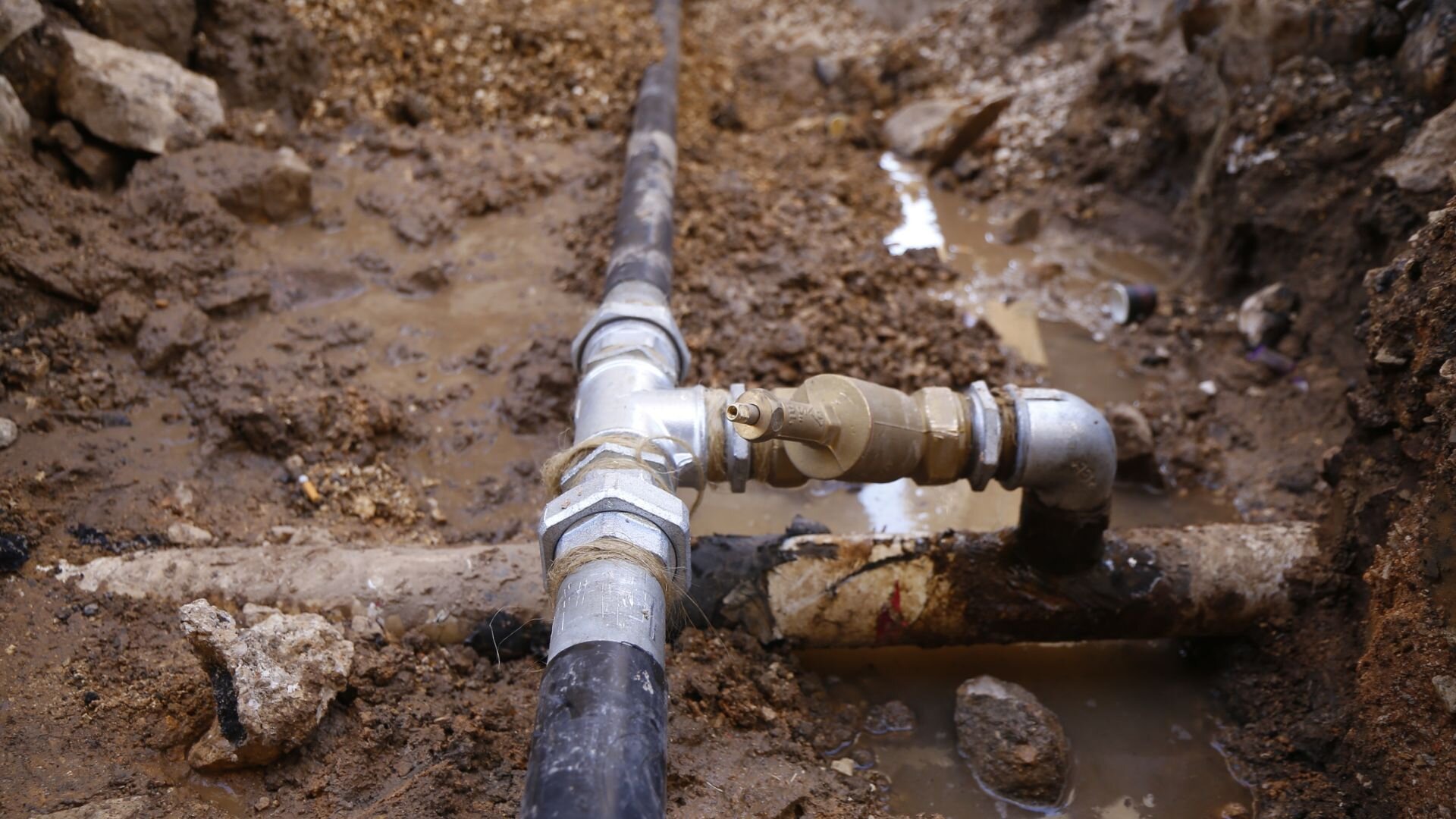
Locating the Main Water Valve
The main water valve is typically found near the water meter. Look for it where the main water line enters your home, which could be in the basement, near the foundation, or outside, close to the street. Familiarising yourself with its location is essential as part of your regular home maintenance checks.
How to Shut Off the Valve
Turning off the main water valve requires firm, clockwise turning until the valve stops. This halts the water supply, cutting off the flow and preventing additional water from escaping through burst water pipes. In some cases, the valve might be stiff or hard to reach. If you encounter resistance, use a pipe wrench or a pair of pliers to help turn the valve. Avoid applying excessive force, which might damage the valve.
When Access Is Difficult
For instance, if the main valve is inaccessible due to its placement or blockages (like those caused by tree roots or built-up debris), you may need to contact emergency plumbing services. An emergency plumber can safely navigate the challenges of shutting off your water supply.
Remember, in the case of a major water leak or when water pipes burst; it’s also advisable to shut off the electricity in the affected area to prevent electrical hazards. Once the water supply is securely shut off, you can assess the situation and plan your next steps, minimising water damage and preparing for repairs.
Step 2: Drain the Remaining Water
After successfully shutting off the main water supply, it is vital to drain the water that remains in the pipes. This step is crucial to ensure no further water escapes through any burst pipes or damaged plumbing fixtures, which could worsen the water damage.
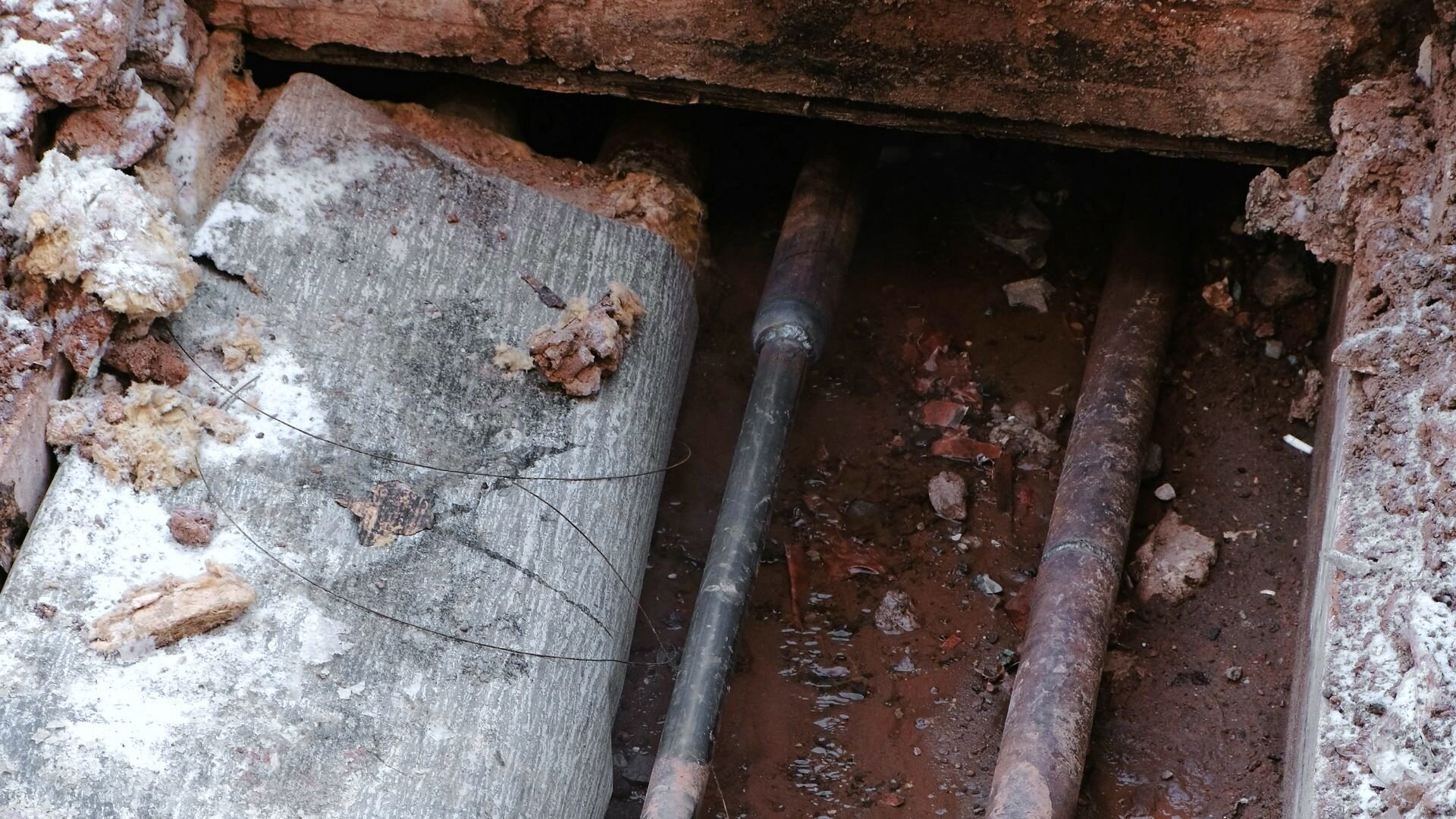
Clearing the Water Lines
Start by turning on every tap in your house, both hot and cold. Doing this lets air in, helping to flush out water left in the pipes. Open taps at the highest spots first, then work your way down. This way, you clear the water lines efficiently.
Flushing Toilets
Next, flush all toilets multiple times. Each flush helps remove water from the toilet tanks and associated plumbing, lowering the risk of additional leaks or water damage.
Final Steps
After you’ve drained the taps and flushed the toilets, check for any wet areas or water stains that indicate leaking water. These signs help identify the locations of the burst pipes. If the task proves too challenging or if extensive damage is observed, it’s prudent to contact a licensed plumber who can provide professional plumbing services and conduct necessary repairs.
This proactive approach addresses the immediate plumbing emergency and prepares your system for the repair process, ensuring that there are no surprises when the water supply is eventually restored.
Step 3: Document the Damage
When dealing with the aftermath of burst pipes or other plumbing issues, it is critical to document all damage comprehensively for insurance claims. This record will support your claim, ensuring you receive the appropriate compensation for repairs and replacements.
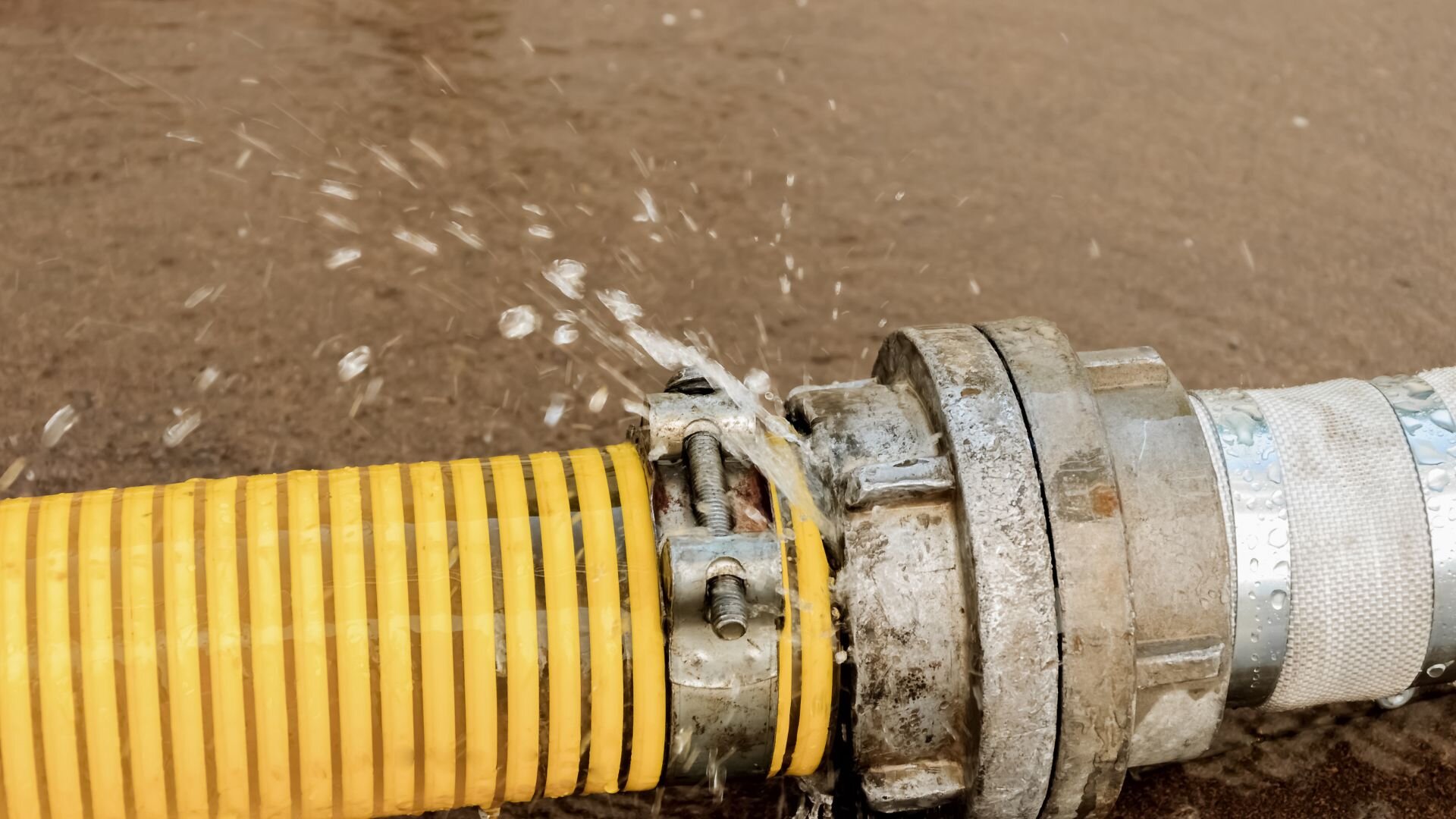
Taking Detailed Photographs
Start by taking photos from multiple angles of all affected areas. Capture clear images of burst water pipes, water stains, and any areas showing water damage. If electrical appliances have been damaged due to water exposure, photograph these as well. Ensure the photos are time-stamped if your camera or smartphone has this feature, as it provides proof of the condition immediately following the incident.
Creating a Thorough Inventory
List every item damaged by the water leak or flooding, including furniture, electronics, and personal items. Describe the condition of each item and estimate the cost to replace or repair them. This inventory will be invaluable when dealing with your insurance provider.
Compiling Additional Documentation
Gather any receipts, warranties, or previous purchase orders for the damaged items. If repairs have been made, include invoices and reports from a reputable plumber or a water damage restoration company. These documents can provide a baseline value for your claim.
Information Required by Insurers
Insurance firms usually need a detailed breakdown of what happened, how bad the damage is, proof you own the items, and their values. They might also want a plumber’s report explaining why the damage happened, like poor installation or a hot water system failure.
Final Tips
When documenting, maintain a calm and methodical approach. If possible, store all photographs and paperwork digitally and make backups to prevent data loss. After compiling your documentation, contact your insurance provider as soon as possible to initiate the claims process. This prompt action is crucial in facilitating a swift and favourable resolution to your claim.
Step 4: Start the Cleanup Process
After documenting the damage from burst pipes, the next step is to begin the cleanup process, which is crucial in preventing further damage and mitigating health risks.
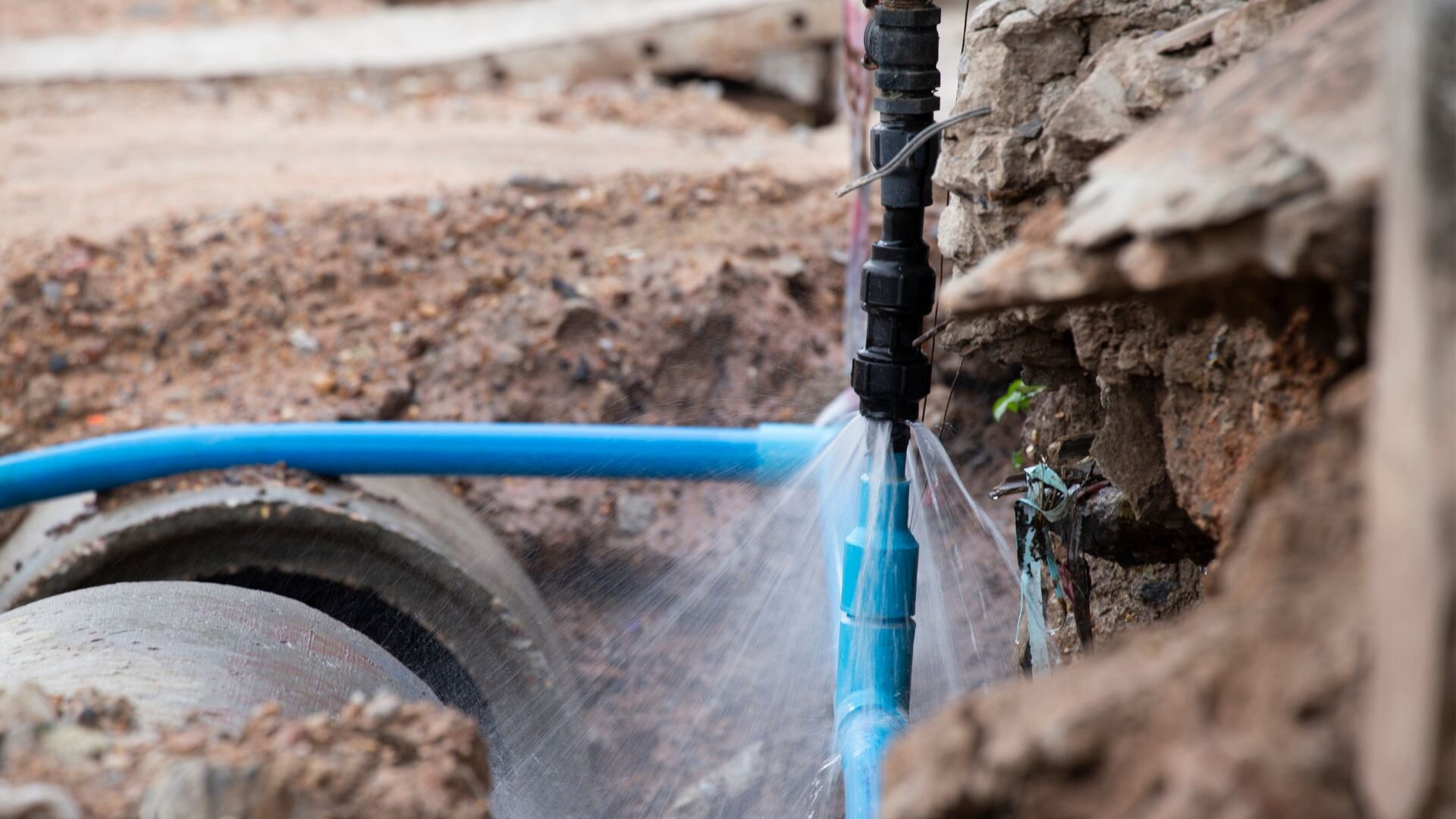
Removing Standing Water
Grab a wet-dry vacuum to swiftly tackle any standing water in the affected areas. It’s great for lifting water from carpets, floors, and more. Make sure you dispose of the water properly to avoid any further issues.
Drying Out the Property
Set up fans throughout the property to enhance air circulation. Additionally, dehumidifiers can be used to reduce moisture levels in the air. Position these devices strategically to target the most heavily affected areas. This step is vital in drying out the property and reducing the potential for mould growth.
Safety Precautions
Always ensure that electrical power to the affected areas is turned off before starting any cleanup involving water. This precaution is crucial to avoid any electrical hazards, especially when operating electrical devices like vacuums and dehumidifiers near wet areas.
General Advice
For items that are too damaged to be restored by simple drying, such as heavily soaked furniture or warped wooden elements, consider consulting with a specialist. Sometimes, professional cleaning services or a detailed plumbing inspection may be necessary to address underlying issues like broken pipes or bad installation.
Step 5: Call in the Professionals
After initial cleanup efforts, engaging professional restoration services is often prudent. These experts can handle complex issues that extend beyond the scope of DIY methods, such as deep water extraction, thorough drying, mould prevention, and major repairs.
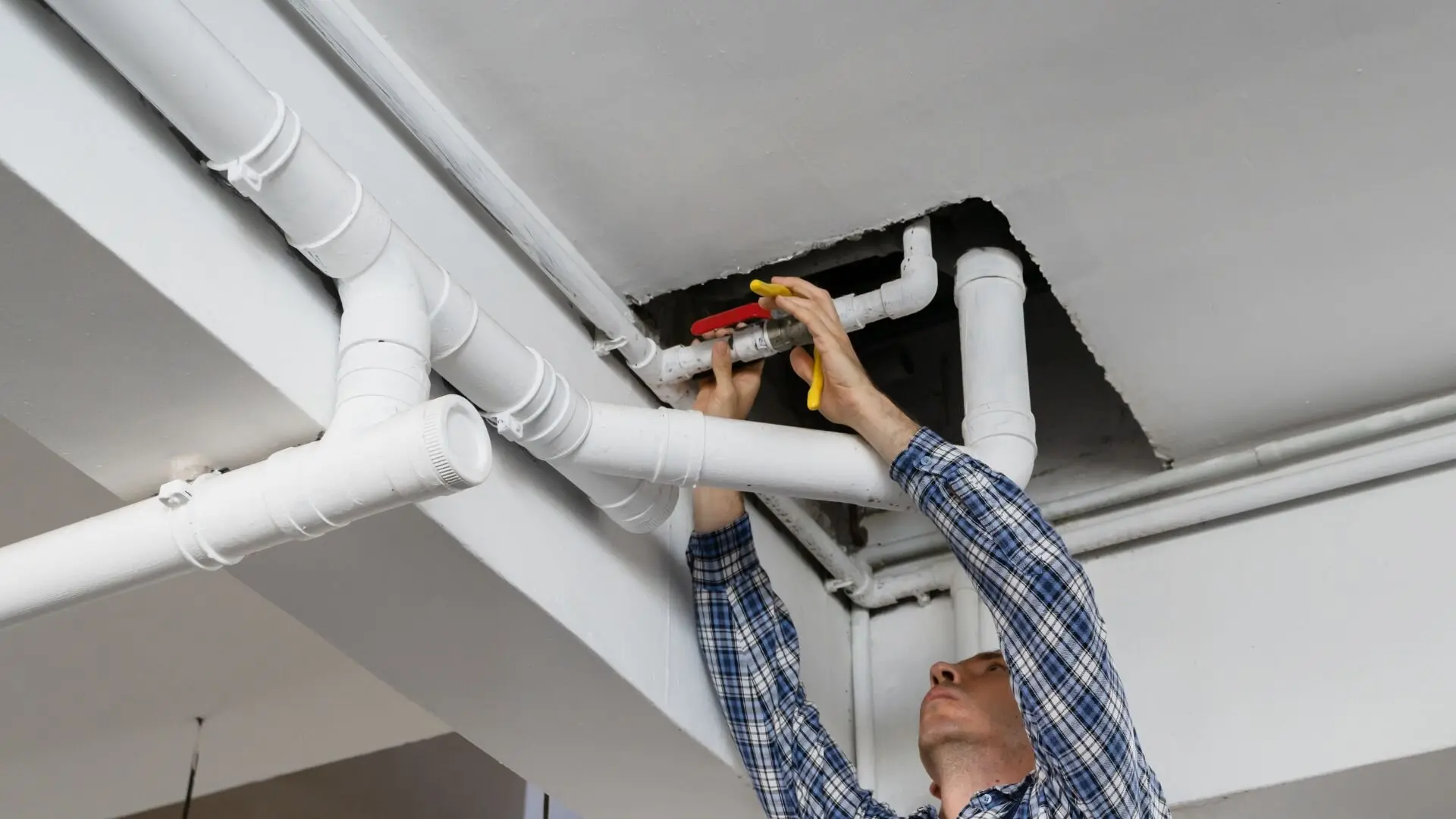
Why Call Professionals?
Professional restoration teams are skilled at cleaning up after events like burst pipes. They bring the right tools and know-how to dry out your place thoroughly, even reaching hidden moisture in walls, floors, and ceilings. Proper drying is key to stopping mould, which is bad for your health and your home.
Beyond Simple Drying
Professional services also evaluate the structural integrity of your property. They can identify and repair a damaged pipe and address issues such as blocked pipes or bursting pipes that might not be immediately apparent to homeowners. Their assessments often include checking for frozen water in pipes, which can lead to pipes bursting when temperatures rise.
Advanced Techniques
These experts might also use advanced techniques such as thermal imaging to detect moisture that is not visible to the naked eye. For homes with extensive damage, they can provide a temporary fix to prevent further water flows, allowing for safe living conditions while permanent solutions are implemented.
Calling in professional services ensures that all aspects of water damage are comprehensively managed, safeguarding your property and health in the long term.
Protect Your Home Against Water Damage
Act quickly to minimise damage from burst pipes and protect your home. Doing regular maintenance like checking for high water pressure and insulating your hot water service and pipes can help prevent bursts.
If burst pipe damage is too much to handle by yourself, or if expert help is what you need, reach out to Fixed Today. Renowned for our dependable, prompt service, we can manage and restore any issue, bringing your home back to safety. Contact us for professional help beyond DIY. At Fixed Today, we’re "Fixing it right, the first time!"














